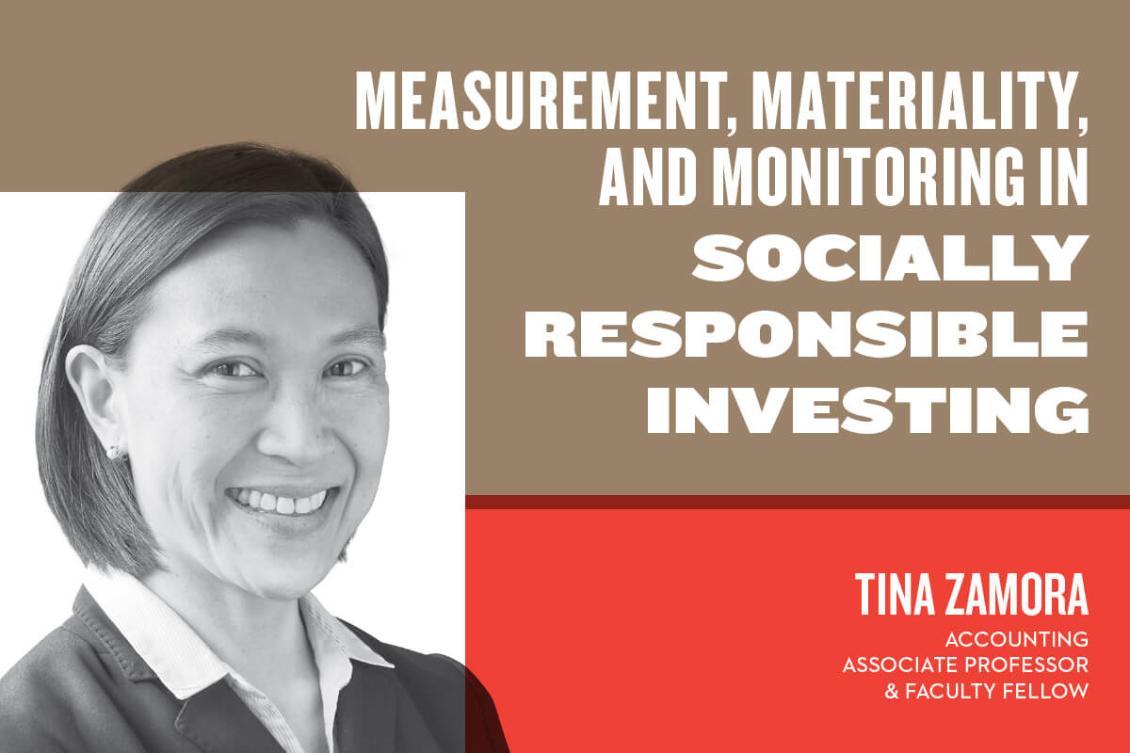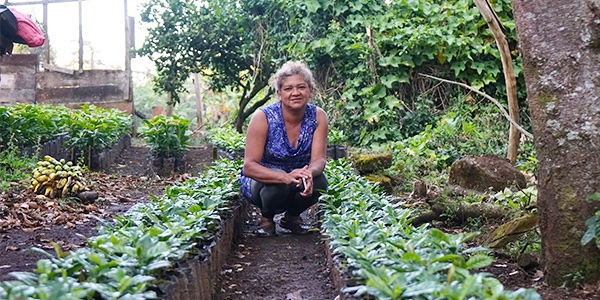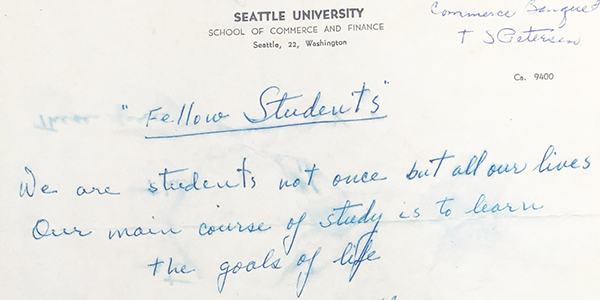
Measurement, Materiality, and Monitoring in SRI
 Last March, Accounting Associate Professor and Faculty Fellow Tina Zamora wrote about presenting at a panel entitled ‘Investing in Sustainability: How To Leverage Your Institution’s Endowment’ for the Center for Business Ethics. The panel was part of the 2021 Washington and Oregon Higher Education Sustainability Conference (WOHESC).
Last March, Accounting Associate Professor and Faculty Fellow Tina Zamora wrote about presenting at a panel entitled ‘Investing in Sustainability: How To Leverage Your Institution’s Endowment’ for the Center for Business Ethics. The panel was part of the 2021 Washington and Oregon Higher Education Sustainability Conference (WOHESC).
As the world continues to grapple with the pandemic, she talks about the challenges posed to socially responsible investing (SRI) and how sustainability reporting matters, more than ever.
On COVID’s impact on SRI
‘Similar to what we are observing in other spaces, the pandemic is amplifying what was already gaining ground in terms of interest in SRI, which is naturally influenced by the CSR (corporate social responsibility) reporting environment. At least in the U.S. context, companies have become more strategic about what and how they voluntarily disclose just as investors have become more skeptical about the quality of these CSR disclosures.
The pandemic made more salient a number of wide-ranging global issues and social inequities spanning from healthcare access to racial justice. In turn, companies are compelled to speak to these concerns and how their CSR activities and future plans aim to be part of the solution, if you will. However, this has already backfired for some as shareholders garner majority support for CSR-related proposals and other stakeholders gain momentum through lawsuits citing CSR-related disclosures.
In turn, companies push back with claims that they already substantially implement a certain proposal, that the proposal relates to ordinary business operations such that its proxy inclusion constitutes micromanagement, or that the forward-looking, financially-material CSR statements are protected by safe-harbor rules.
In effect, over the course of the pandemic, what was CSR disclosure strategy and skepticism has been amplified to CSR disclosure distrust between corporations and capital market participants.’
On notable trends and developments in SRI
 ‘Issues around measurement, materiality, and monitoring continue to be challenging. As well, we are seeing acceleration in two areas of central concern to SRI investors -- climate change risk disclosures and human capital management disclosures.
‘Issues around measurement, materiality, and monitoring continue to be challenging. As well, we are seeing acceleration in two areas of central concern to SRI investors -- climate change risk disclosures and human capital management disclosures.
Global standard setters are now proposing a new, building blocks approach that sets a global baseline for sustainability reporting upon which national and regional bodies may supplement with standards consistent with their specific initiatives. However, critics challenge how this multi-speed approach will ultimately address investors’ need for a reporting system that delivers consistent, reliable, adaptable, and assurable information relevant to enterprise value creation, sustainable development, and evolving expectations.
Meanwhile in the U.S., an SEC rule revision in November 2020 increased the disclosure requirements for human capital management. This SEC rule requires registrants to provide a description of human capital resources material to understanding their business, and this data may include demographic workforce data by race/ethnicity, sex, and job categories. However, it is unclear how this largely principles-based rule change will ultimately provide useful information for investors and other stakeholders.
For example, a recent analysis of the first 100 Form 10-K filed following the rule change by companies with at least $1 billion in market capitalization finds that while the qualitative descriptions have increased, quantitative data have not.’
On where to read up more on ESG (environmental, social, and governance)
‘Here’s a short piece from the New York Times on impact investing, with other ones appearing periodically in the ‘Wealth Matters’ section. I’ve recently come across a case study from the Council on Foundations and a repository of articles on Racial Equity & Impact Investing, so I’ll be putting these in either my browsing or reading list.’







